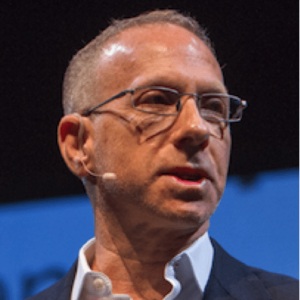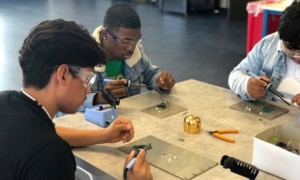Fostering Innovation in Cities

By: Steven Hodas
To create real and lasting change in any large organization but particularly in government, it’s not enough to change policy: you also have to change the daily practice and culture of the organization. Policy changes and headline–grabbing initiatives are always subject to detour and reversal but changes in the processes for how the organization solves its problems are much longer lasting.
It’s like a software stack. Policies—the prominent issues like curriculum, accountability, charters etc. on which candidates for mayor, school boards, and superintendencies campaign —are the big software applications, the word processors and spreadsheets that we think of when we go to do work. They’re feature–rich and top–of–mind but they’re also easy to replace with other applications if we want to.
Contrast this with the underlying operating system that makes it possible for these applications to run, and the machine language that enables the computer to actually execute the instructions sent by the application. We think about those less often and engage with them less often, but they completely determine what applications can run and how well they can run.
In school districts as in government generally, scant attention is also paid to the organizational equivalents of operating systems and machine languages: functions like procurement, contracting, IT policy, and stakeholder engagement. Yet as with software these less–visible enabling functions determine how—and how well—the bureaucracy can execute its policy goals, whatever they may be.
In fact, the frustrations that people feel when dealing with school districts often relate more to these underlying systems than to the more visible policy agenda. Since most political leadership doesn’t appreciate the role that the “district operating system” (DOS) plays in maintaining the status quo it tends to remain in place across successive waves of reform. It is supported by long–time managers who continue to operate as they have been trained while waves of policy crusaders come and go.
One of the most promising opportunities for upgrading the DOS has been the rise of “open governance” assumptions and activities. Through alliances of grass–roots political activists and civic–data hackers, open governance emphasizes the creation of APIs for information that is already nominally public but not usefully so because it is locked up in PDFs, Word documents, and spreadsheets. APIs allows citizens, solvers and advocates outside the agencies to create applications and analysis tools for public data, linking it to other municipal, state, and federal datasets in ways that enable new insights and uses that often would not have been anticipated by the agencies themselves.
In education, these datasets contain no personally–identifiable information of the type that doomed inBloom and so offer a non-threatening way for schools and communities to realize the benefits of information flow while working through the important issues around student data privacy.
This combination of open–data and crowd–sourced tools that draw on it has been a powerful, positive force throughout government and is beginning to be felt in education at the local, state, and Federal levels. It is policy–neutral and tremendously empowering to all education stakeholders, including the district administrators who benefit from the reduced friction and broader communities of engaged problem–solvers.
The Smart Cities blog series catalogs innovations in learning in America’s great cities. We’re writing a book about what we’re learning–and you can help.
 While at NASA Steven Hodas built the U.S. government’s first public website. He went on to create the web’s most popular sites for high school and college students and the first large-scale formative assessment platform for school districts. For the past five years he has worked closely with early-stage entrepreneurs, launched two companies of his own and recently joined the NYC DOE to head its Ecosystem Initiative, which seeks to foster smart demand for innovative solutions in the nation’s largest school district.
While at NASA Steven Hodas built the U.S. government’s first public website. He went on to create the web’s most popular sites for high school and college students and the first large-scale formative assessment platform for school districts. For the past five years he has worked closely with early-stage entrepreneurs, launched two companies of his own and recently joined the NYC DOE to head its Ecosystem Initiative, which seeks to foster smart demand for innovative solutions in the nation’s largest school district.



0 Comments
Leave a Comment
Your email address will not be published. All fields are required.